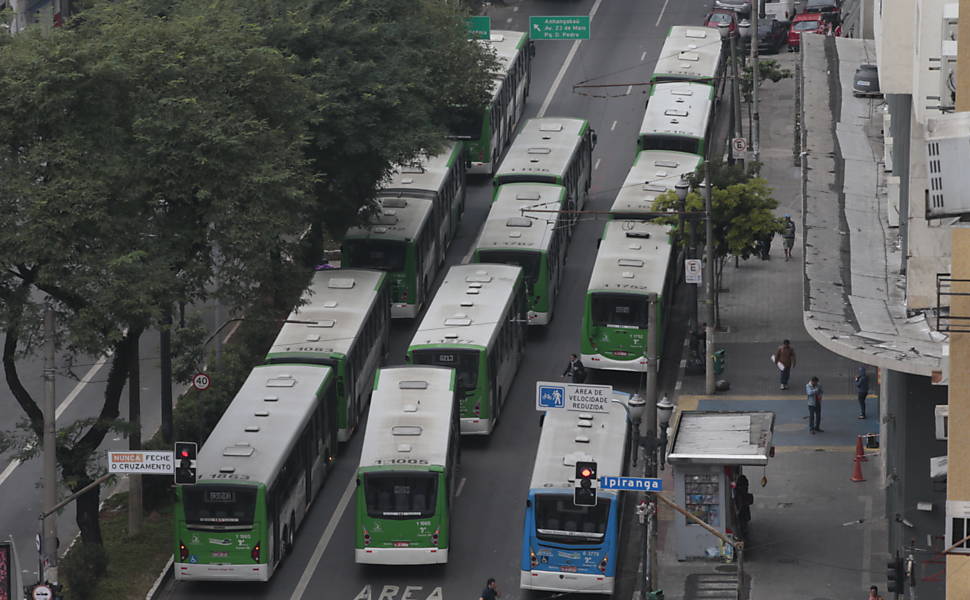Latest Photo Galleries
Brazilian Markets
11h55 Bovespa |
+1,28% | 126.243 |
16h43 Gold |
0,00% | 117 |
12h00 Dollar |
-0,70% | 5,1274 |
16h30 Euro |
+0,49% | 2,65250 |
ADVERTISING
7 out of 10 Paulistanos Believe Protests do More Harm than Good
05/22/2014 - 08h58
Advertising
RICARDO MENDONÇA
FROM SÃO PAULO
With drivers and cashiers of the city's buses now on strike, the attitude of São Paulo residents towards protest in general seems to be changing.
For every 10 residents, 7 believe that protests do more harm than good, whether for themselves as individuals (69%) or for society in general (73%).
These are high figures. No previous survey has reflected such a critical view. However, a slim majority (52%) is still in favor of the protests.
The figures are from a Datafolha survey carried out in São Paulo yesterday, the first day of the bus drivers' strike. The strike has caused widespread disruption to the city's transport system.
Given the sample size, the latest results make for interesting comparison with two surveys in 2013: one in June, shortly after the explosion of protests that swept Brazil, and another in September.
On both previous occasions, popular support for the protests was much higher. In June, 89% were in favor, while in September the figure stood at 74%.
However, there are some important differences between last June's protests that those that began on Tuesday.
Last year, thousands of people from diverse backgrounds took the streets, with a wide range demands: from reduction of price hikes on public transport to an end to police violence, from improvements to health and education to tougher measures against corruption, and more.
The 2013 protests were initially coordinated by the Movimento Passe Livre (Free Fare Movement), but as they increased, the organization became more diffuse. Virtually the entire city came to a halt as a result of the huge marches.
The current protest is being conducted by a specific group: employees of the urban bus system. Their demand - an improvement to the proposed 10% pay rise - concerns only them. The leadership also remains secret, as the union that represents the striking workers has not endorsed the strike.
Moreover, while last year São Paulo was disrupted by the mass movement of people, this time around the disruption has been caused by city buses parked across streets.
WORLD CUP
Datafolha also surveyed attitudes concerning next month's World Cup.
Perhaps the most striking statistic was the high rate (90%) of São Paulo residents who believe that there has been corruption of some form in the organization of the event.
Opinion is polarized as to whether the World Cup should be held in Brazil: 45% are in favor, 43% against. As the margin of error is four percentage points (819 people were surveyed), technically this can be called a draw.
Brazil's readiness to host the event is less divisive: 76% of those surveyed believe that Brazil is not sufficiently prepared, while 55% believe that the tournament will do the country more harm than good.
However, when asked about the possibility of protests during the tournament, a significant number changed sides, with 63% against.
Might this represent some form of relief for the authorities? Unlikely. 76% of those surveyed also believe that the protests against the World Cup are only likely to increase.
Translated by TOM GATEHOUSE




